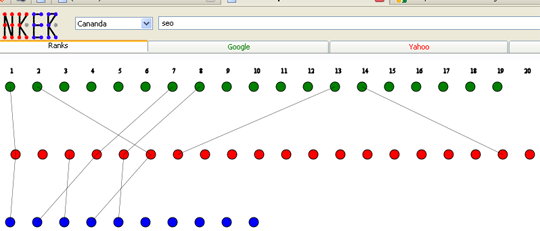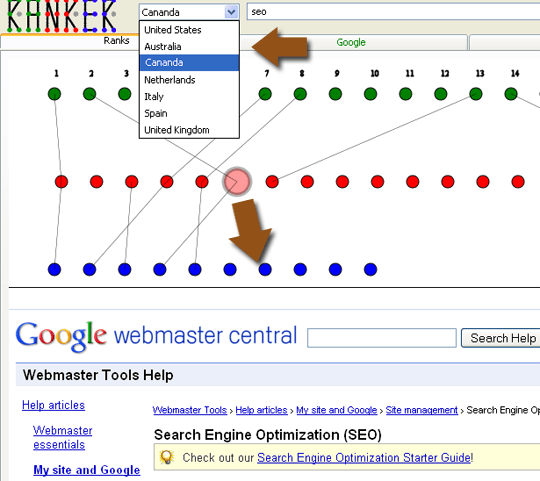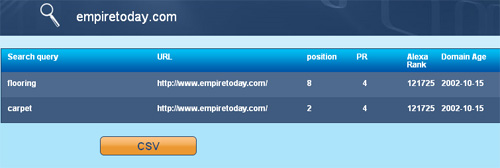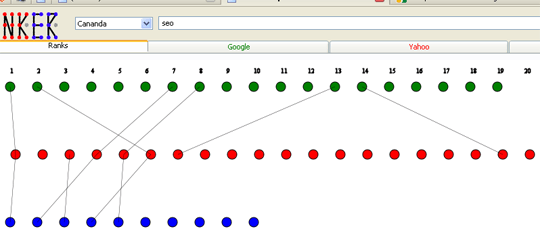We come across plenty of SERP- (search engine result page) -based tools daily. Most of them work the following way: they grab search results for the given term and re-arrange the data so that you could run some type of analysis or discover something your wouldn’t be able to see otherwise.
Most of those tools are “linear”: they rely on only one set of search results. This post looks at some “vertical” SERPs-based tools, i.e. those that aggregate data from a numbers of searches and allow to conduct cross-SERPs analysis.
Those tools are in minority (or I am just not aware of most of them? If you know any, please share in the comments). Here are the two I am aware of:
1. StomperTools Ranker (FireFox)
This tool visualizes connections between Google. Yahoo! and Bing search results.
If the same page appears in multiple search engines, StomperTools Ranker connects the dots with a line, showing you the relationship.

Handy features include:
- Choose the country to target the results (available: United States, Australia, canada, Netherlands, Italy, Spain, United Kingdom);
- Load any page by clicking on the dot (the page will load in the frame below in the same tab);

While there are many possible uses of the tool, I usually turn to it to find the “luckiest” pages that got ranked high throughout all search engines. Simply “mouseover” a dot and right panel will show you the Title and URL of the page (for you to see the page details).

2. WhoICompete (Web-Based)
While the above tool allows to research relations between ranked pages among different search engines, WhoICompete shows you the relations between different domains across up to 10 Google search result pages.
Disclaimer: The tool was developed and reviewed by me as an experiment (I’ve been reviewing tools for two years now, why not start creating them?).
The tool features include:
- Target search results to various countries;
- Set the tool crawl depth (how many search results it should go through:
Most basically, the tool goes through the number of Google SERPs, combines them, finds domains that were ranked in a number of them and creates a handy report. You can:
- Export the whole table to a CSV file;
- See some SEO-relevant data for any of the page (or all in bulk): Google PageRank, results for SITE: search; Alexa rank, etc;
- See which exactly pages from each domain got ranked as well as learn their exact position in Google:

As always, I welcome your feedback and additions!





![AI Overviews: We Reverse-Engineered Them So You Don't Have To [+ What You Need To Do Next]](https://www.searchenginejournal.com/wp-content/uploads/2025/04/sidebar1x-455.png)